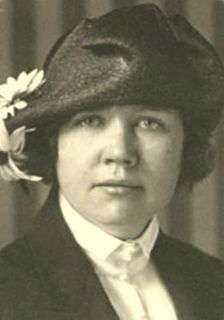A Quote by Noam Chomsky
The real world of American society is one which it is very misleading to call simply a democracy. Of course, it is in a sense a democracy, but it is one in which there are enormous inequities in the distribution of power and force. For example, the entire commercial and industrial system is in principle excluded from the democratic process, including everything that goes on within it
Quote Topics
American
American Society
Call
Commercial
Course
Democracy
Democratic
Democratic Process
Distribution
Distribution Of Power
Enormous
Entire
Everything
Example
Excluded
For Example
Force
Goes
Goes On
Including
Industrial
Misleading
Power
Principle
Process
Real
Real World
Sense
Simply
Society
System
The Real World
Very
Which
Within
World
Related Quotes
If you have reservations about the system and want to change it, the democratic argument goes, do so within the system: put yourself forward as a candidate for political office, subject yourself to the scrutiny and the vote of fellow citizens. Democracy does not allow for politics outside the democratic system. In this sense, democracy is totalitarian.
When we talk about Cuban democracy we are referring to participatory democracy which is big difference with representative bourgeois democracy. Our is a democracy in which everything is consulted with the people; it is a democracy in which every aspect and important decision that has an impact in the life and society of the people, is done in consultation.
I am no historian, but Hungary is a country which has never known democracy - and by that, I mean not a democratic political system, but an organic process which has mobilised the entire country's society. In the case of Hungary, this development was blocked by the growth of the Ottoman empire in the 16th century.
Education in democracy must be carried on within the Party so that members can understand the meaning of democratic life, the meaning of the relationship between democracy and centralism, and the way in which democratic centralism should be put into practice. Only in this way can we really extend democracy within the Party and at the same time avoid ultra-democracy and the laissez-faire that destroys discipline.
In this world which is losing faith in so called representative democracy, there are new developments in participatory democracy. These are very interesting developments, reflecting the revitalization of community power with a more and more active presence of minorities in political life, including the presence of women who are of course by no means a minority.
I call government that works the best for people open society, which is basically just another more general term for a democracy that is - you call it maybe a liberal democracy. It's not only majority rule but also respect for minorities and minority opinions and the rule of law. So it's really a sort of institutional democracy.
Because they don't teach the truth about the world, schools have to rely on beating students over the head with propaganda about democracy. If schools were, in reality, democratic, there would be no need to bombard students with platitudes about democracy. They would simply act and behave democratically, and we know this does not happen. The more there is a need to talk about the ideals of democracy, the less democratic the system usually is.
Every democracy must involve civil society in the process of establishing budgets, and all sectors of society must be consulted to determine what the real priorities of the population are. Lobbies, including military contractors and other representatives of the military-industrial complex, must not be allowed to hijack these priorities to the detriment of the population's real needs.
Democracy, or "majority rules," is another trick of our society to force us to do things we don't want to do. Even if we actually lived in a pure democracy (and the system we do live in is not even close), where everyone got a single vote on every subject, forcing the minority to obey the majority is no different to one man, if he had the power, forcing everyone else to do what he wanted them to-simply because he could.
Democracy, in the United States rhetoric refers to a system of governance in which elite elements based in the business community control the state by virtue of their dominance of the private society, while the population observes quietly. So understood, democracy is a system of elite decision and public ratification, as in the United States itself. Correspondingly, popular involvement in the formation of public policy is considered a serious threat. It is not a step towards democracy; rather it constitutes a 'crisis of democracy' that must be overcome.



































